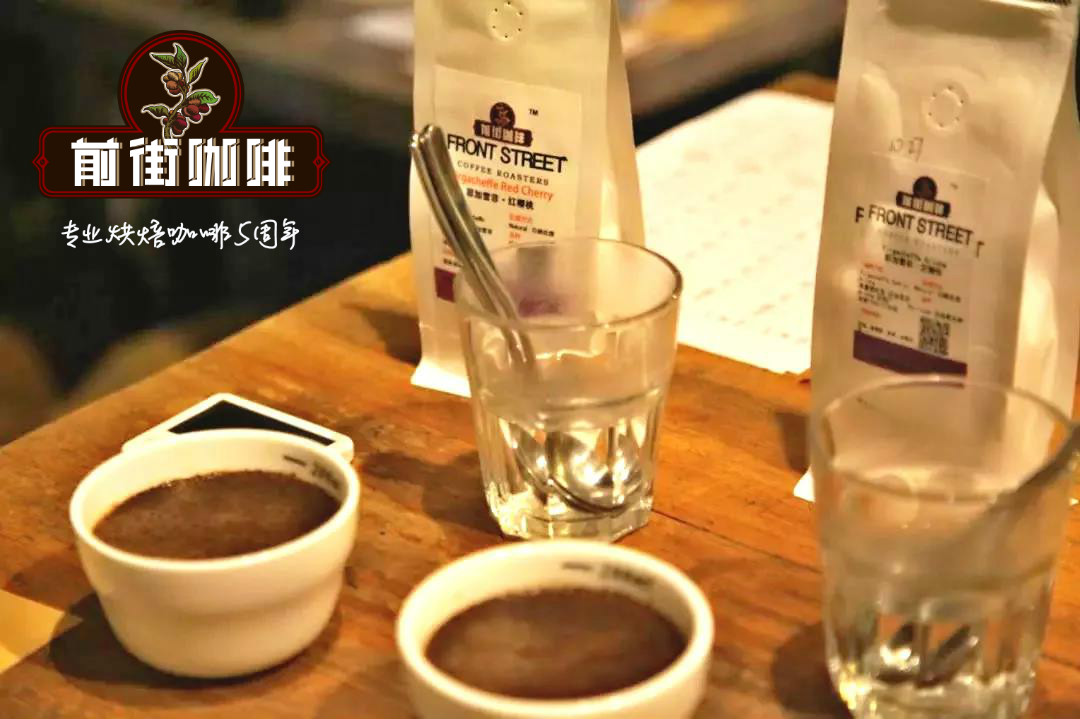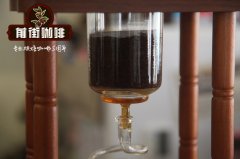What is the unique flavor of Mexican coffee? what are the most famous beans of Mexican coffee?

Professional coffee knowledge exchange more coffee bean information please follow the coffee workshop (Wechat official account cafe_style)
What is the flavor of Mexican coffee with unique regional flavor? How to make organic coffee from Chiapas, Mexico?
Located in the southernmost Mexican state of Chiapas, there is a plateau covered with coniferous forests and dense primeval rainforests. The rich and varied geographical environment is a paradise for outdoor enthusiasts, and the numerous Mayan civilization sites in the region bear witness to the former glory of the ancient empire.
Mexico is the eighth largest coffee producer in the world, and Chiapas is one of the most famous coffee producing areas in Mexico. Chiapas coffee beans are rich in fruit aromas and layers, bright and sweet taste, fruit flavors include sucrose and honey aromas.
The highest quality coffee beans produced in Mexico are the most southeastern Chiapas, which is close to the Viv Heights of Guatemala, with alpine characteristics in the taste and excellent performance in Mexico, with Tapachula Chiapas marked on the raw bean packaging.
The city of Tapachula is an important commercial and agricultural center. So far, Mexico still belongs to aboriginal small-scale cultivation, with only two or three hectares of land, in addition to coffee, corn, soybeans and other crops.
Coffee is their main source of income-the raw beans after harvest are handed over to the cooperative to deal with the latter, but some of them make their own way, and they are also highly appreciated and respected in fair trade organizations.
Dry aroma: the fruit has obvious sour taste, good thickness of nuts, greasy feeling and sweetness like black sugar.
Wet fragrance: thick nuts, creamy greasy feeling, orange aroma and sucrose sweet when the temperature is lower.
Sipping: the acidity is clean, the level is obvious, it is not prominent, the sense of health is good, the body is thick and excellent, the coordination is excellent, the Aftertest after entering the throat is long-lasting, the fragrance of the flowers is obvious, and the sweetness of the rhyme is comfortable.
Flavor:
Low acidity of nuts, spices, cream, cool herbs, smooth and mild taste
Country l: Mexico
Producing area: Chiapas
Rating: SHG
Treatment: washing
Certification: Organic
Flavor: low acidity of nuts, spices, cream, cool herbs, smooth and mild taste.
Mexico is one of the largest producers of organic certified coffee, mostly sold to the United States because of geographical factors. The country's coffee industry, which began in the 19th century and was introduced through Jamaica, is mainly planted with Arabica varieties, near Soconusco, which borders Guatemala on the Pacific coast. In the early 1990s, the southern state of Chiapas became the most important coffee-producing region in Mexico, producing about 275000 tons of coffee a year, accounting for 45 per cent of the country's production. More than 2 million of Mexicans depend on coffee for a living, and 75 per cent of Mexican coffee farmers work on less than two hectares of land. These small farmers produce about 30 per cent of the country's coffee each year, while the rest are produced by large or high-capacity farms. Since 1988, especially in Chiapas, the government has increased income by providing simple loans to farmers and encouraging the development of woodland to encourage poor coffee farmers to increase their yields and expand their planting areas.
Chiapas is located on the plateau at the southern tip of Mexico bordering Guatemala. In 1991, the Mexican National Institute conducted a study on the protection of the rights of local indigenous peoples and enhanced the protection of indigenous residents through the formulation of product trade regulations. under such purposes and conditions, cooperative organizations in various districts are springing up like bamboo shoots after a spring rain. OPCAAC, whose full name is Organizaci ó n de Productores de Caf é de Á ngel Albino Corzo, is an organic smallholder production organization in Chiapas. OPCAAC, founded in 1995, constructs a farm management system, emphasizes the open and transparent independent production and marketing information of coffee farmers, and sets standards to avoid over-exploitation of land. The organization provides its members with assistance in micro-loans, technical training, social activities, etc., and continues to pay attention to the development of organic agriculture and ecological protection. OPCAAC aims to create the value of the local coffee industry and improve the quality of life of local farmers through fair trade and eco-friendly agricultural production. OPCAAC members use environmentally friendly farming methods to reclaim land, establish sustainable economic and social management and improve the quality of their products through the development of regional organizations.
Qianjie cuisine is recommended:
V60 filter cup, 15g powder, water temperature 90-91 degrees, grinding 3.5.The ratio of water to powder is close to 1:15
Steaming in 30 grams of water for 30 seconds
Segment: water injection to 120ml cut off, slow water injection to 225ml
That is, 30-120-75
Other suggestions for trickling extraction:
Normal pressure, recommended grinding degree of 3.5-4 / water temperature 90 °C
Philharmonic pressure, recommended 2.5 grinding degree, water temperature 90 °C
Hand punch: 3.5 degree of grinding, water temperature 91 °C
3.5 Grinding-90 degrees water temperature
Related recommendation: is hand-made coffee really good? Why does coffee smell better than it tastes?
Important Notice :
前街咖啡 FrontStreet Coffee has moved to new addredd:
FrontStreet Coffee Address: 315,Donghua East Road,GuangZhou
Tel:020 38364473
- Prev

Luckin Coffee's wool is not good either! The subsidy has been reduced and the threshold of free delivery fee for northward has been raised by 20 yuan.
Professional coffee knowledge exchange more coffee bean information please follow the coffee workshop (Wechat official account cafe_style) also want to Luckin Coffee (Luckin coffee) wool? It's not that easy. Recently, Luckin Coffee's stores in Beijing and Shanghai quietly raised the threshold for free distribution fees, from 35 yuan to 55 yuan. This means that even if you buy now,
- Next

Is Yemeni coffee drunk by too many people? can you buy Yemeni coffee beans now?
Professional coffee knowledge exchange more coffee bean information please follow the coffee workshop (Wechat official account cafe_style) because recently Yemeni coffee has gradually begun to enter people's attention, for Yemeni coffee, we must understand some Yemeni coffee market situation ~ 1. Yemeni coffee industry development status (1) in recent years, the total output has been declining continuously since 2001, due to various reasons.
Related
- What brand of black coffee is the most authentic and delicious? what are the characteristics of the flavor of the authentic Rose Summer Black Coffee?
- Introduction to the principle and characteristics of the correct use of mocha pot A detailed course of mocha pot brewing coffee is described in five steps.
- Which is better, decaf or regular coffee? how is decaf made?
- How much is a bag of four cat coffee?
- How about four Cat Coffee or Nestle Coffee? why is it a cheap scam?
- Which is better, Yunnan four Cats Coffee or Nestle Coffee? How about cat coffee? is it a fake scam? why is it so cheap?
- How about Cat Coffee? what grade is a hoax? which instant coffee tastes better, four Cat Coffee, Nestle Coffee or G7 coffee?
- Process flow chart of coffee making-Starbucks coffee making process what coffee tastes good at Starbucks
- The top ten best coffee beans in the world Rose summer coffee or Tanzanian coffee tastes good
- Yunnan four cat coffee is good to drink?_four cat coffee is a big brand? four cat blue mountain coffee is fake?

